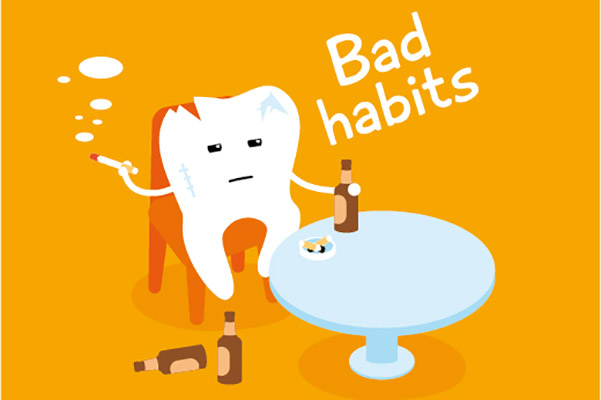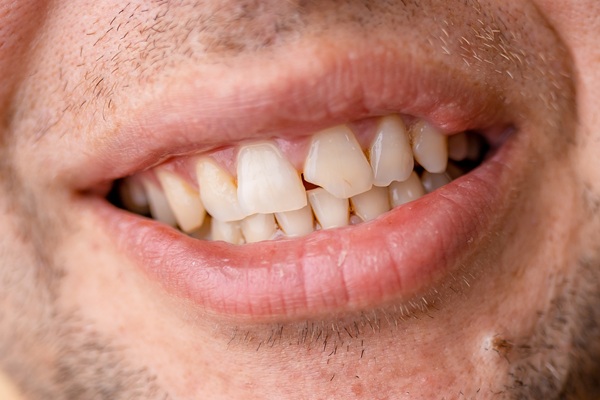 Having a firm understanding of oral hygiene basics can prevent tooth decay, gum disease, and general oral discomfort. Human beings go through life developing a range of habits that impact oral health, some of which are good and some of which are bad. Avoiding these damaging behaviors promotes strong teeth and gums that can last a lifetime.
Having a firm understanding of oral hygiene basics can prevent tooth decay, gum disease, and general oral discomfort. Human beings go through life developing a range of habits that impact oral health, some of which are good and some of which are bad. Avoiding these damaging behaviors promotes strong teeth and gums that can last a lifetime.
6 bad habits to avoid
Being proactive in good dental care habits prevents oral health problems, and correcting these tendencies can reduce potential damage to the mouth. Take note of these habits.
1. Brushing too harshly
The temptation to vigorously brush the teeth in an effort to remove bacteria and plaque should be avoided. While teeth are a durable substance, brushing too harshly will wear down the enamel on the teeth as well as irritate the gums. Should the gums begin to recede, this can lead to exposure of dentin below the gum surface. Use a soft-bristled brush and brush for two minutes more consistently to thoroughly clean the teeth.
2. Biting the fingernails
Some nervous habits are hard to kick, but given that biting on the fingernails can be incredibly damaging to the teeth, this is one that needs to go. As a part of oral hygiene basics, biting the fingernails introduces a host of bacteria and foreign germs into the mouth, but chewing on non-edible items can lead to cracking, chipping, or fracturing of the teeth.
3. Constantly eating
Though the teeth are designed to take the abuse from chewing and chomping, continually snacking throughout the day can do damage to the teeth. Drinking sugary, carbonated soft drinks or sweetened coffee can leave the teeth coated in sugar for the day. However, constantly eating carbohydrate-filled foods or munching on chips acts as fuel for any oral bacteria living in the mouth. This can create a strong, damaging layer of plaque and tartar that leads to premature tooth decay.
4. Grinding or clenching
Many people develop the habit of bruxism, which is grinding the teeth or clenching the jaw for extended periods of time. It can occur throughout the night or while an individual is awake, and it has been seen in individuals dealing with stress. These bad habits wear down the enamel on the teeth and increase the vulnerability of tooth decay. The habit can create problems with jaw pain, chipped teeth, and headaches.
5. Tobacco use
Using tobacco is deemed hazardous to one’s overall health, but it also has a direct impact on good oral health. Tobacco can cause staining on the teeth and mar the appearance. Further concerns come from the potential inflammation of the salivary glands and reduced saliva production. Smoking can also lead to oral concern, loss of bone density in the jaw, gum disease, and bad breath.
6. Poor chewing decisions
Teeth should not be used as tools, whether tearing a bag of chips open or holding onto items. Teeth should not be used to chew on ice, popcorn kernels, or other hard materials.
Conclusion
Know these oral hygiene basics to preserve the look and function of the teeth. Bad habits can lead to discomfort and serious damage.
Request an appointment or call Lilburn Family Dentistry at 770-800-0178 for an appointment in our Lilburn office.
Recent Posts
Keeping up with oral hygiene basics can prevent cavities and other issues with your teeth. Proper daily care can also stop discoloration of the teeth and reduce bad breath. Here are some dental habits that people can benefit from including as part of a daily routine.One of the most important parts of oral hygiene is…
Brushing and flossing are essential oral hygiene basics that help prevent tooth decay and gum disease. While many people pay careful attention to their teeth and gums, the tongue is often neglected. However, this large surface of the mouth should also be cleaned on a daily basis. Doing so can help many people enjoy better…
Although many people believe that plaque and tartar are the same, they actually have significant differences. Understanding the distinctions between these two dental conditions can help you identify their warning signs and practice oral hygiene basics to avoid them.Plaque is a soft film containing millions of bacteria that build up on your teeth, gums, and…


